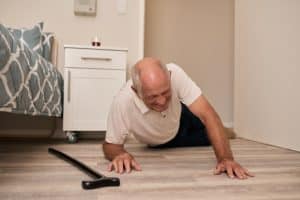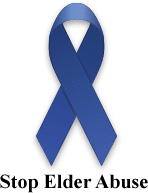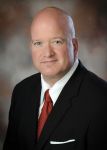 Every 11 seconds, an older person in the United States is treated in an emergency room for fall-related injuries.
Every 11 seconds, an older person in the United States is treated in an emergency room for fall-related injuries.
When an adult falls, it often results in life changing consequences. Falls can lead to extending nursing home stays, permanent disability and even death.
The good news is that many falls can be prevented. The risk factor that is most likely to predict a future fall is a previous fall.
Falls can be caused by any number of things. Falls can be caused by vision problems. Falls can be caused by tripping on objects. Falls can be caused by weakness. Falls can be caused when an elderly person is knocked down by somebody else.
At The Dickson Firm, falls are one of the most common types of cases that handled by our Elder Law Attorneys. Our injury lawyers have handled hundreds of cases involving falls in nursing homes throughout the State of Ohio.
Nursing homes in Ohio have a duty, pursuant to the Ohio Nursing Home Residents Bill of Rights, which is a state law in Ohio, to provide their residents with a safe environment. This includes an environment where they address the needs of their residents who are at risk for falling. Many nursing home residents are at risk for falling.
When a resident is admitted to a nursing home, the nursing home is obligated to perform a comprehensive assessment of that resident to determine all of their needs. One of the things that they have to determine is if that person is at risk for falls. Some nursing home residents can walk safely on their own. They can get up and go to the bathroom on their own. They can walk to the dining room and have a meal on their own. They may need to be kept in the nursing home so they don't wander outside of the nursing home and get injured because they have dementia or some other challenge. But they are able to move about safely. Other nursing home residents are not able to get up on their own. They need assistance to get out of bed. However, there are a number of residents in the middle, who are strong enough to get up on their own, but not strong enough to walk safely on their own. They need supervision, and they need assistance.
As Ohio Nursing Home Lawyers we need to be familiar with the many state and federal laws and regulations that apply to the care of nursing home residents in a nursing home. Pursuant to the Code of Federal Regulations, which is a set of federal regulations that apply to all nursing homes in the United States, nursing homes are obligated to provide their residents with adequate supervision to prevent accidents. Nursing homes are also obligated to keep the resident environment as free of action hazards as is possible.
So, how do nursing homes provide their residents with adequate supervision?
Many residents use alarms. There are pressure pads that can go beneath a resident's chair or their bed so if the resident begins to get up, it sounds an alarm, and the staff can then attend to the resident and make sure that they are not getting up unattended. There are string alarms whereby a clip is placed on the resident's clothing, and the string goes to a magnet at the base of the alarm. If the resident begins to get up and pulls the magnet off its base, an alarm sounds, and the staff at the nursing home can attend to the resident. Nursing homes can make use of cameras in the rooms. They can make use of motion detectors.
Some nursing homes tell families who are admitting a loved one into their nursing home that fall alarms are restraints. This is completely untrue. While there may be some residents who might be startled by the sound of an alarm, alarms are not restraints. Further, there are many alarms that don't make an audible sound. There are alarms that set off a pager that a nurse can wear on her person. There are alarms that illuminate a light over the door of the resident's room. There are even alarms that could be programmed with the voice of one of the resident's loved ones telling that resident to sit down and call for help. There are many ways to implement alarms effectively without disturbing the residents.
At The Dickson Firm, it is our belief that many nursing homes have stopped using alarms because the use of alarms makes it easier to prove a nursing home case when somebody has fallen and suffered injury. If the resident was supposed to have an alarm and they did not have an alarm in place when they fall, then the nursing home would be liable for that fall. If the alarm does go off and the staff does not respond promptly, that can also be used against the nursing home in a lawsuit.
The fact remains that nursing homes are obligated to provide their residents with adequate supervision to prevent accidents. If you are admitting someone who you love into a nursing home and they are at risk for falls, you need to have a detailed discussion with the staff at the nursing home about what their plan is to keep your loved one safe.
What is their plan to give them adequate supervision? If they don't use alarms, how do they provide their residents with adequate supervision. We here at The Dickson Firm have never been provided with a reasonable response to that question.
We have never seen a strategy where a nursing home is actually able to provide adequate supervision to their residents without the use of alarms. Imagine a nursing home at 3:00 in the morning. There are 30 residents on one wing. There is one nurse and two aides on duty on that wing. How could those three people possibly know whether any of their 30 residents are up walking around their room? Imagine two of the aids are in one resident's room transferring that person to their wheelchair and ultimately to the commode using a Hoyer lift so that person can be toileted. Imagine the nurse is tending to a second resident. That leaves 28 residents unattended. It is simply not possible for the staff at a nursing home to have eyes on every single resident 24 hours a day. They need to come up with a system for adequate supervision. This system routinely involves some technology that enables the staff to keep an eye on the residents.
If your loved one is at risk for falls and the nursing home does not have an adequate strategy to prevent falls, do not leave your loved one in that nursing home. At The Dickson Firm our experienced nursing home lawyers have handled many cases where a person has suffered a fatal fall within hours of being admitted to the nursing home. We have handled many cases where the family member has told us that they specifically told the staff that their loved one was a fall risk and yet the nursing home did not put any interventions in place and the resident fell and suffered a serious injury.
In many cases, the resident is a new resident in the nursing home because they have suffered a fall. We see many cases where somebody suffers a fall at home, suffers an injury, goes to the hospital for treatment, often surgery, and then is sent to the nursing home for rehabilitation. As indicated above, the best indicator that somebody is a fall risk is if they have had a prior fall. The nursing home is obligated to provide each of their residents with an adequate strategy to prevent falls. If your loved one is at risk for falling out of bed, their bed should be placed in the lowest position. They can even place the mattress directly on the floor. And there should be a mat next to the bed.
Falls can be extremely harmful for elderly people. Falls can lead to fractures which can lead to immobility. Immobility can lead to pneumonia. Immobility can lead to bed sores. Falls themselves can be fatal. We have handled many, many cases where nursing home residents have fallen and either suffered a head injury which is ultimately fatal or even an orthopedic injury which is ultimately fatal. An incredibly high number of elderly people who suffer falls do not survive a year after that fall. As a result, fall prevention has to be a significant priority for any nursing home that cares about providing good care.
If someone you love has suffered an injury in a nursing home, please call us at The Dickson Firm at 1 (800) OHIO-LAW, as we would be happy to talk with you and help you in any way that we can.


